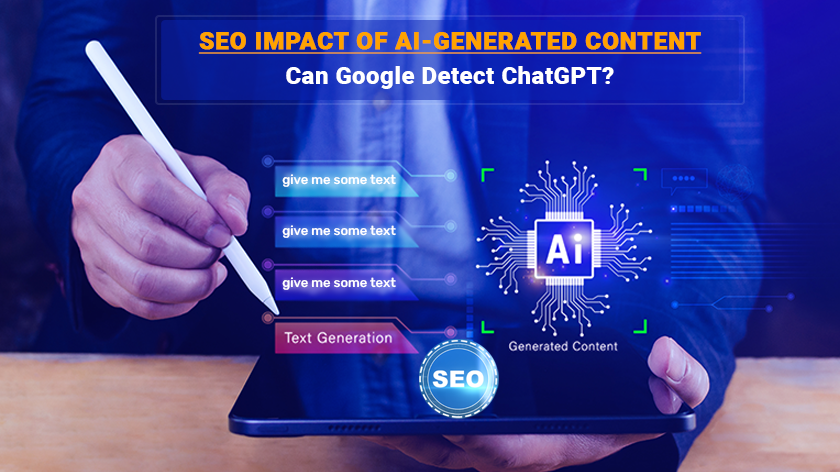In recent years, The rise of AI-generated content, particularly from models like ChatGPT, has significantly transformed the digital landscape. As more businesses and content creators leverage these tools to produce articles, blog posts, and other digital content, a pressing question arises: How does AI-generated content impact SEO, and can Google detect it?
Understanding AI-Generated Content
AI-generated content refers to text produced by artificial intelligence models. These models, like OpenAI’s ChatGPT, use complex algorithms and vast datasets to generate human-like text. The primary advantage of AI-generated content is its efficiency and ability to produce large volumes of text quickly. However, this raises concerns about the quality, originality, and SEO implications of such content.
The Positive Impact of AI on SEO
AI can be a powerful tool for SEO when used strategically. Here’s how:
- Increased Content Output: AI can help create more content, allowing you to target a wider range of keywords and reach a larger audience.
- Improved Efficiency: AI can automate repetitive tasks like research and content formatting, freeing up your time for strategic planning and higher-level content development.
- Data-Driven Insights: AI can analyze vast amounts of data to identify trends and topics that resonate with your audience, helping you create content that’s more relevant and engaging.
Can Google detect AI-generated content?
Google’s advanced algorithms are continuously evolving, with a focus on identifying and promoting high-quality content. While Google hasn’t explicitly stated that it can detect AI-generated content, there are several factors to consider:
- Patterns and Consistency: AI-generated content may exhibit certain patterns or styles that differ from human writing. Google’s algorithms, which analyze patterns and context, might detect these inconsistencies.
- Contextual Understanding: Google’s AI, such as BERT (Bidirectional Encoder Representations from Transformers), is designed to understand the context of content. If AI-generated content lacks depth or context, it may be identified and ranked lower.
- Manual Reviews: In some cases, Google’s human reviewers may evaluate content for quality. If they identify AI-generated content that doesn’t meet quality standards, it could impact rankings.
Detecting AI-generated content poses challenges due to its ability to emulate human language and structure. However, certain telltale signs, such as repetitive phrases, unusual syntax errors, or a lack of real-world context, may prompt Google’s algorithms to scrutinize content more closely. Additionally, discrepancies in authorship attribution and inconsistencies across different sections of the text can raise red flags.
As AI technology continues to evolve, it’s likely to become an even more valuable tool for SEO. But remember, AI is best used as an assistant, not a replacement for human creativity and editorial oversight. Here are some things to consider about content posts:
Key Takeaways:
- Focus on high-quality, informative content that meets Google’s E-A-T standards.
- Use AI to streamline content creation, not to replace human expertise.
- Edit and fact-check all AI-generated content before publishing.
AI-generated content, like that produced by ChatGPT, offers significant advantages in terms of efficiency and scalability. However, its impact on SEO depends on how it’s used. By maintaining high-quality standards, ensuring originality, and focusing on user engagement, businesses can effectively integrate AI-generated content into their SEO strategies. While Google’s detection capabilities continue to evolve, adhering to best practices will help mitigate potential risks and maximize SEO benefits.
Boost Your Content with XcelTec! Get top-quality, original AI-generated content to improve your SEO. Contact us today!
Visit our website now: https://www.xceltec.com/
 :
https://www.xceltec.com/
:
https://www.xceltec.com/












